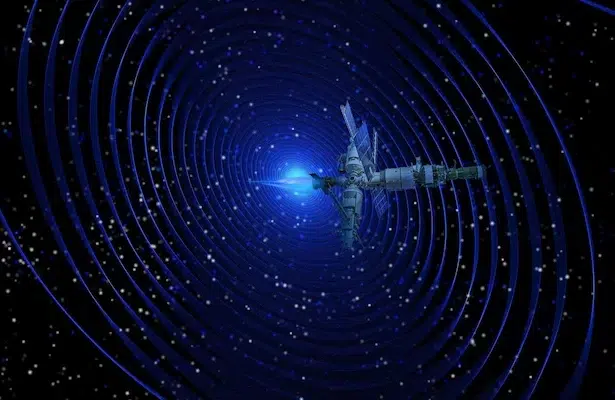The Indian Space Research Organisation (ISRO) is gearing up for a significant collaboration with the European Union, as it prepares to launch the Proba-3 Sun Observation Mission this December. This mission will be a groundbreaking step in solar research, with the goal of exploring the Sun’s corona, the outermost layer of the Sun’s atmosphere. Dr. Jitendra Singh, Union Minister of State for Science and Technology, announced this upcoming mission during his address at the Indian Space Conclave 3.0 in New Delhi. The event focused on India’s advancements in space technology and the government’s ambitious goals for the sector, with Proba-3 standing out as a prime example of international scientific cooperation.
Proba-3: A Game-Changing Mission to Study the Sun’s Corona
The Proba-3 mission, developed by the European Space Agency (ESA), will be launched on ISRO’s Polar Satellite Launch Vehicle (PSLV-XL) from the Sriharikota spaceport in Andhra Pradesh. This mission consists of two coordinated satellites working in tandem to create a solar coronagraph—a powerful instrument for studying the Sun’s corona in greater detail. By flying in precise formation 144 meters apart, these satellites will allow scientists to observe the faint corona close to the Sun’s surface, providing unprecedented insights into this elusive part of the solar atmosphere.
The corona, which is significantly hotter than the Sun’s surface, has long intrigued scientists. However, studying it has been challenging due to the intense brightness of the solar disk. Proba-3 will help to filter out this brightness and capture images of the corona with remarkable clarity. By analyzing this part of the Sun, researchers aim to gain insights into solar wind formation and the mechanisms behind solar flares and coronal mass ejections, which have the potential to impact Earth’s space environment.
ISRO and ESA: A Collaborative Mission to Unlock Solar Mysteries
During his address at the Indian Space Conclave, Dr. Singh emphasized the importance of the partnership between ISRO and European scientists in advancing solar research. This joint mission is expected to deepen understanding of solar phenomena, ultimately benefiting space weather predictions and contributing to safer satellite and space technology operations.
Dr. Singh highlighted that Indian scientists would work closely with their European counterparts on this mission to understand the mysteries of the Sun’s corona. The Proba-3 mission marks a new era of international cooperation for ISRO, reinforcing India’s growing stature in the global space community. Through collaborations like these, ISRO is not only expanding its technical capabilities but also contributing to the global pursuit of scientific knowledge.
India’s Expanding Space Sector and Ambitious Goals
The Proba-3 mission reflects India’s larger goals within the space sector, which has seen significant growth following the government’s 2023 New Space Policy. This policy has opened doors for private sector involvement in space activities, which was previously restricted for over six decades. According to Dr. Singh, this move has triggered a boom in the industry, unlocking opportunities for private companies to engage in satellite launches, satellite manufacturing, and other space-related projects. He added that almost every sector in India is now leveraging space technology, from agriculture and telecommunications to defense and urban development.
India’s focus on space technology also aligns with its goal of becoming a key player in the global space economy. Currently, India’s contribution to the global space market is around 2%. However, Dr. Singh expressed the government’s vision to increase this share to 10% in the coming years. By promoting policies that support private participation and international collaboration, India aims to establish itself as a major space-faring nation.
Upcoming Projects: Bharatiya Antariksha Station and India’s Lunar Mission
Beyond the Proba-3 mission, India has set ambitious targets in space exploration. Dr. Singh outlined the government’s plans to establish the Bharatiya Antariksha Station (BAS), an Indian space station, by 2035. This ambitious project will mark India’s entry into the exclusive group of nations capable of building and maintaining a space station, providing a platform for extended scientific research and space technology development.
Additionally, ISRO is working towards sending the first Indian astronaut to the Moon by 2040. This goal forms part of India’s broader vision to make significant strides in manned space missions. The proposed lunar mission will build on the success of previous ISRO programs, such as the Chandrayaan missions, and strengthen India’s position in deep-space exploration.
Role of Space Technology in India’s Development
At the Indian Space Conclave, Dr. Singh also emphasized how space technology is increasingly woven into India’s developmental framework. He highlighted its role in fostering smart city initiatives, where navigation systems, satellite imaging, and terrain mapping contribute to efficient urban planning and infrastructure management. Space technology is also being utilized in sectors like agriculture, where it aids in crop monitoring and weather forecasting, and disaster management, where satellite data helps in predicting and responding to natural calamities.
With ISRO’s advancements and the government’s supportive policies, India is not only positioning itself as a space technology powerhouse but also leveraging this technology to address real-world challenges. By integrating space-based solutions, the country is aiming to improve quality of life and build sustainable systems for future generations.
A New Dawn in India’s Space Journey
As ISRO prepares to launch the Proba-3 Sun Observation Mission, India’s space sector is poised for further breakthroughs in solar research and technological innovation. The mission not only underscores India’s commitment to scientific advancement but also highlights its increasing role in international collaborations. Proba-3 will provide scientists with critical data on the Sun’s corona, while setting a benchmark in precision formation flying with two coordinated satellites.
India’s space journey continues to evolve, with plans to launch a national space station, send a manned mission to the Moon, and expand private sector participation. Through initiatives like Proba-3 and the New Space Policy, India aims to advance its scientific capabilities, contribute significantly to the global space economy, and make space technology accessible to all sectors.


